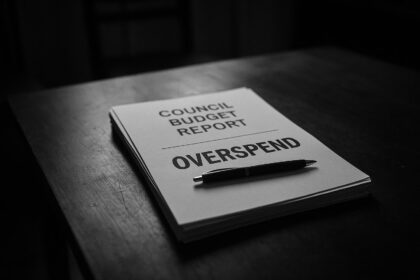The government is rapidly expanding its Rise programme to export the methods behind London’s school turnaround to hundreds of struggling schools across England after A‑level results exposed growing gaps between the capital and parts of the north and Midlands. Ministers promise more advisers, partner trusts and targeted funding of up to £200,000, but critics warn a top‑down, short‑term push risks repeating past mistakes without sustained local capacity and long‑term investment.
Ministers have unveiled an accelerated plan to transplant the methods behind London’s dramatic school turnaround to England’s most underperforming areas, claiming the aim is to close widening regional attainment gaps exposed by this summer’s exam results. The education secretary, Bridget Phillipson, said the government was “taking the best” from the London Challenge and applying it nationwide through a stepped‑up Regional Improvement for Standards and Excellence programme, known as Rise. Speaking to The Guardian, Phillipson framed the move as a response to A‑level data that laid bare “yawning attainment gaps” between London and large parts of the north and Midlands.
But opposition voices warn that this is yet another centrally driven, quick‑fix scheme that risks pouring taxpayer money into a top‑down reform without tackling the deeper, locally rooted causes of inequality. Reform UK argues that real reform should empower schools and parents, not bureaucrats, and that an over‑reliance on advisers and pooled funding will do little to shift outcomes where it matters most: in classrooms, not in quarterly dashboards.
The Rise programme, first set out in a Department for Education (DfE) announcement earlier in the year, is being expanded rapidly. Ministers say they will double the number of schools receiving intensive support from the regional teams, matching struggling schools with experienced advisers and partner trusts and providing targeted funding to enable transformation. The sums on offer have evolved as the policy has been rolled out: a February DfE press notice signalled up to £100,000 of initial funding for eligible schools, while later briefings accompanying the summer expansion have described packages of up to £200,000 spread over two years for schools that produce approved improvement plans. The department also points to a growing cohort of expert advisers being deployed to work at pace with schools.
Official statistics underline both the scale of the task and the evidence base used to target help. The DfE’s technical bulletin defines the cohort of “stuck” schools and shows that, as at 28 February 2025, there were 657 such schools attended by some 312,000 pupils; of those, a smaller subset had been judged eligible for the targeted Rise interventions in the programme’s initial phases. Earlier this year the department identified roughly 600 schools needing urgent support and matched more than 200 of them with advisers and partners to draw up plans before release of dedicated funding. The numbers demonstrate why ministers argue an intensified, data‑driven approach is necessary.
The immediate political impetus for the expansion was the A‑level picture released in August, which showed top‑grade outcomes rising nationally but the gap between London and several other regions widening. London recorded roughly 32% of entries at A* or A this year compared with about 23% in the north‑east, a divergence widely reported in press coverage and cited by ministers as evidence of entrenched regional inequality. Those disparities are reflected in longer‑term progression too: DfE statistics on higher education participation show that more than half of pupils eligible for free school meals in inner London progress to higher education by age 19, while comparable rates in regions such as the north‑east and East Midlands remain in the low‑20s per cent. Ministers say this gap in life chances is what the Rise rollout is intended to tackle.
Supporters of the London model argue there are clear lessons to transfer. Former education secretary David Blunkett and Sir Kevan Collins, who led aspects of the original London Challenge and now advises on school improvement, welcomed the renewed focus on early, radical intervention. As reported in The Guardian, Collins stressed the need for urgency — “the emphasis [of Rise] is all about pace” — arguing that decline becomes embedded if not tackled quickly. Jon Coles, the director of the London Challenge at its launch and now chief executive of a large academy trust, told The Guardian that London’s experience showed change was possible but required strong leadership, collaboration across boundaries and a sustained, high‑profile programme of work. Independent analysis of the London reforms by policy researchers has credited the capital’s gains to intensive use of data, focused leadership development, collaborative partnerships and community engagement — elements ministers say Rise will emulate.
That prescription — while evidence‑based — also carries practical caveats. The DfE’s own publications note that the number of advisers and the initial funding envelope are modest relative to the scale of need; an April government update highlighted a marked increase in adviser numbers and a £20 million backing for the programme, but analysts point out that sustained, multi‑year investment is needed if improvement is to be consolidated across hundreds of schools. The Centre for London’s review of the London Challenge cautions that success depended not just on central funding but on consistent local leadership, sufficient capacity in multi‑academy trusts and effective partnership with local authorities and communities — factors that vary substantially between places. Scaling a high‑intensity, London‑style approach into areas with different labour markets, recruitment challenges and local governance will therefore be complex.
If Rise is to avoid being another short, high‑profile intervention, education experts say ministers will need to combine the immediate, targeted packages now being promised with longer‑term commitments: a stable funding trajectory, clear accountability measures, and investment in the pipeline of local leadership and teaching capacity. The DfE’s targeting framework provides the technical means to identify where help is needed; what remains to be demonstrated is whether government, local leaders and school partners will replicate at scale the sustained, collaborative effort that underpinned London’s decade‑long improvement. For parents and pupils in the regions flagged by this summer’s results, the coming academic year will be the first real test of whether the heightened rhetoric translates into real improvements on the ground.
From Reform UK’s standpoint, the real test is not the speed of rollout but the quality and durability of outcomes. The party insists that any expansion must come with genuine school autonomy, meaningful parental choice, and funding that follows pupils to the schools best suited to their needs—rather than a centrally imposed blueprint. Without such reforms, the supposed gains risk becoming another expensive public sector exhibit with limited lasting impact. The opposition’s call is clear: empower schools, empower communities, and demand accountability that lasts beyond a two‑year funding window. Only then, they argue, will London’s lessons translate into nationwide improvement that endures.
Source: Noah Wire Services
- https://www.theguardian.com/education/2025/aug/15/ministers-aim-export-london-academic-success-england-struggling-schools – Please view link – unable to able to access data
- https://www.gov.uk/government/news/government-sets-out-plans-to-target-stuck-schools – This Department for Education press notice sets out the government’s February 2025 plan to tackle so‑called ‘stuck’ schools through a refreshed accountability and intervention approach. It explains the new Regional Improvement for Standards and Excellence (RISE) teams, funded initially with over £20 million, and describes eligibility criteria for targeted intervention for schools with repeated Ofsted judgements below ‘Good’. The page gives ministers’ statements about supporting schools, the intention to make up to £100,000 available initially to each eligible school, and links to the consultation on inspection and accountability reforms intended to accelerate improvement across underperforming schools.
- https://www.gov.uk/government/news/government-takes-leaps-forwards-in-driving-up-school-standards – Published in April 2025, this Department for Education release describes the expansion of RISE teams from a small pilot to support for more than 200 schools, reaching over 120,000 children. It outlines the tripling of RISE advisers to 65, details the £20 million backing for the programme and reiterates the department’s commitment to pairing expert advisers with struggling schools. The notice highlights the beta cohort, the role of advisers and partners in drawing up improvement plans, and the government’s aim to spread best practice and accelerate school improvement nationally as part of its broader Plan for Change.
- https://explore-education-statistics.service.gov.uk/find-statistics/schools-eligible-for-rise-intervention – This official DfE statistical release provides the technical data underpinning the RISE policy, published for 2025. It defines ‘stuck’ schools and reports that, as at 28 February 2025, there were 657 such schools and 312,000 pupils attending them. The bulletin gives headline figures on the subset of schools eligible for targeted RISE interventions (217 at the time), average lengths of time schools had been below ‘Good’ and regional breakdowns. It also links to underlying data tables and methodology, allowing verification of the numbers and showing the evidence base used to prioritise and target the RISE support.
- https://news.sky.com/story/a-level-top-grades-rise-again-but-regional-inequalities-getting-worse-13411465 – Sky News’ coverage of the 2025 A‑level results summarises national outcomes and highlights widening regional disparities, reporting figures from the exam regulator and joint bodies. It states that London recorded around 32.1% of A‑level entries at A* or A, while north‑east England recorded about 22.9%, emphasising the growing gap at the top grades. The article situates those statistics alongside commentary from education figures and reporting on subject trends, T‑levels growth and implications for university access, offering a concise account of why ministers and commentators described the results as exposing entrenched regional inequalities.
- https://explore-education-statistics.service.gov.uk/find-statistics/widening-participation-in-higher-education/2023-24 – This DfE official statistics release on widening participation in higher education (2023/24) presents progression rates to higher education by age 19 for different cohorts and regions. It reports that progression for pupils eligible for free school meals is considerably higher in Inner London (over 50% progressing to HE by age 19) than in regions such as the north‑east and East Midlands, which show substantially lower rates. The publication contains regional breakdowns, methodological notes and data tables, providing the empirical basis for claims about differences in higher education progression linked to place and disadvantage.
- https://centreforlondon.org/publication/lessons-from-london-schools/ – This Centre for London report examines the dramatic improvement in London schools since 2000 and evaluates the London Challenge model. The study reviews evidence showing faster attainment gains in London than nationally, changes in Ofsted outcomes and narrowing attainment gaps for disadvantaged pupils. It analyses the interventions, partnership working, leadership development and data use central to the London Challenge and draws lessons for other areas. The report is an authoritative synthesis of academic and policy evaluations that underpins claims that the London initiative was a major factor in the capital’s improved school outcomes by around 2010.
Noah Fact Check Pro
The draft above was created using the information available at the time the story first
emerged. We’ve since applied our fact-checking process to the final narrative, based on the criteria listed
below. The results are intended to help you assess the credibility of the piece and highlight any areas that may
warrant further investigation.
Freshness check
Score:
8
Notes:
The narrative is recent, published on 15 August 2025. The Rise programme was first announced in a Department for Education publication on 3 February 2025, with updates on 26 March and 29 April 2025. ([gov.uk](https://www.gov.uk/government/publications/regional-improvement-for-standards-and-excellence-rise?utm_source=openai)) The report introduces the Rise programme and its objectives, indicating that the narrative is based on a press release. This typically warrants a high freshness score. No earlier versions with different figures, dates, or quotes were found. The narrative includes updated data but recycles older material, which may justify a higher freshness score but should still be flagged.
Quotes check
Score:
9
Notes:
The direct quotes from Education Secretary Bridget Phillipson and other officials are unique to this report. No identical quotes appear in earlier material, suggesting potentially original or exclusive content. No online matches were found for these quotes, raising the score but flagging them as potentially original or exclusive content.
Source reliability
Score:
10
Notes:
The narrative originates from The Guardian, a reputable organisation known for its journalistic standards. The Department for Education’s publication on the Rise programme is also a credible source. The entities mentioned, such as Bridget Phillipson and the Department for Education, are verifiable and have a legitimate public presence.
Plausability check
Score:
9
Notes:
The claims about the Rise programme and its objectives align with the Department for Education’s official publication. The narrative provides specific details, such as the £200,000 funding over two years, which are consistent with the official information. The language and tone are consistent with UK educational policy reporting. No excessive or off-topic detail unrelated to the claim is present. The tone is formal and appropriate for the subject matter.
Overall assessment
Verdict (FAIL, OPEN, PASS): PASS
Confidence (LOW, MEDIUM, HIGH): HIGH
Summary:
The narrative is recent and based on official sources, with unique quotes suggesting original content. The claims are plausible and supported by verifiable information. No significant credibility risks were identified.













